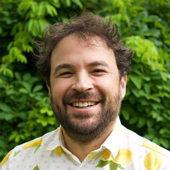
Dr. Evan Goldstein (Office of Research and Engagement) received new funding from the National Science Foundation for the project “IRES Track II: The Coastal Processes & Machine Learning Advanced Studies Institute.” Dr. Somya Mohanty is co-principal investigator on the project.
Coastlines support commerce, infrastructure, and diverse ecosystems that provide habitat to endemic flora and fauna; provide valuable tourism and recreational opportunities; and protect people and critical infrastructure from storms and flooding. Future sea level rise and storminess will cause dramatic changes along the coastline, and a deep understanding of coastal systems is key to mitigating against impacts.
To study coastal systems, scientists are presented with a growing volume and type of data, much of it open and ‘FAIR’: Findable, Accessible, Interoperable, and Reusable. There has been a concomitant rise in tools and techniques to harness this data revolution, specifically machine learning (ML) methods. Unfortunately, coastal scientists and students do not have often have formal training in these modern tools – they have not been embedded within the curriculum for coastal engineering and earth science. Even if students do have training (from a ML class), the example problems and datasets are not coastal in nature.
The researchers propose to develop an Advanced Studies Institute (ASI) for senior graduate students from Coastal Science, Earth Science, and Coastal Engineering who are interested in developing research expertise in the use of ML in a coastal context. Their goal is to train the next generation of promising US coastal researchers in cutting-edge ML techniques, and teach students how harnessing the data revolution,.
The researchers’ proposed ASI will be located in Auckland, New Zealand, capitalizing on New Zealand’s unique strength in open coastal data and ML expertise. The ASI will be taught jointly with eminent coastal researchers from the University of Auckland and the University of Waikato . The US-based team are early-career experts in applying ML skills to coastal problems, and have experience administering short courses on ML topics to coastal scientists. Finally, the short course will advance students’ professional network, expose students to unique cultural experiences in New Zealand, and strengthen the New Zealand-US bond in coastal research, specifically coastal ML work.


